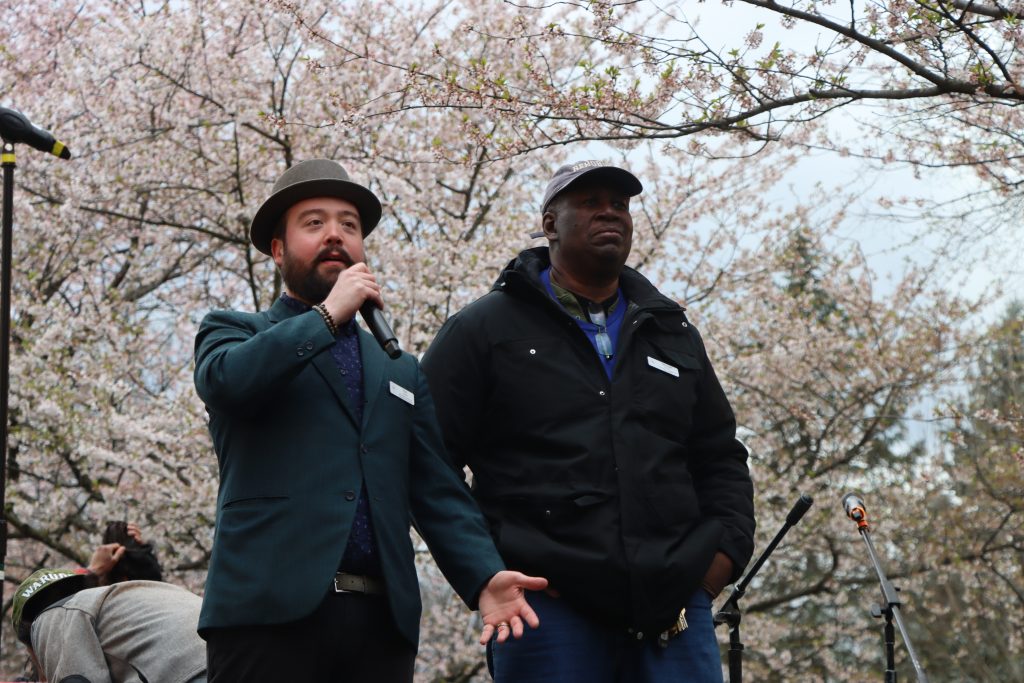
USJC Associate Rob Buscher, who serves as the Executive Director of the Japanese American Confinement Sites Consortium and President of the Philadelphia Chapter of the Japanese American Citizens League (JACL), has long been a leader in empowering Japanese and other Asian Americans. He ran the Philadelphia Asian American Film Festival for seven seasons and oversaw the revitalization of Japan America Society of Greater Philadelphia’s Cherry Blossom Festival following the onset of the COVID-19 pandemic (work which he recently presented at the 2023 Annual Conference for the “Art as Currency: Japanese Culture in Contemporary America” session). He is also dedicated to not only welcoming Black communities within these spaces but highlighting the special cultural intersections between Black and Japanese American communities. Recently, he sat down with the Council to discuss and share some of the work that he’s been a part of in community and coalition building in Greater Philadelphia.
The aftermath of the major Black Lives Matter (BLM) protests that took place after Trayvon Martin was killed in 2012 marked Mr. Buscher’s entry point into the world of community and coalition building between the Black and Japanese American communities. Witnessing the major protests and direct actions that arose in Philadelphia, the predominantly Black city in which he resides, served as a wake-up call for him to reflect on his own experiences as a mixed race Japanese American and what it takes to engage in larger conversations involving race. He also cites his involvement with JACL, the oldest and largest Asian American civil rights organization that also has a history of coalition building, as an influence because of the community elders he has been able to meet and be surrounded by who, for example, marched from Selma to Montgomery in 1965 and spent a night in jail for diner sit-ins with Congressman John Lewis in 1964.
Since becoming president of JACL Philadelphia, the chapter has been involved in the efforts to gain Black reparations, and Mr. Buscher shared how the chapter became involved. Though there was interest prior, he states that the aftermath of the George Floyd protests and the establishment of the California Reparations Task Force that involved former legal counsel of JACL National Don Tamaki, a lawyer who was also involved in the Japanese American Redress Movement, encouraged and led to conversations between JACL and the National Coalition of Blacks for Reparations in America (N’COBRA). These conversations included talks on the current state of Black reparations, ways JACL could engage and the similarities and differences between what Black reparations is and what the Japanese American Redress was. For the JACL Philadelphia chapter, these conversations led to joining the Philadelphia branch of N’COBRA’s efforts in the successful push for Philadelphia’s City Council to create a Reparations Task Force.
Mr. Buscher notes that “it’s really the duty of Japanese Americans, particularly those of us whose families were incarcerated or are recipients of the Redress, to pay it forward and to think about how we can participate in a meaningful way in the Black Reparations Movement,” and with the JACL National Convention being held in Philadelphia in 2024, he’s optimistic about being able to share with the national delegation their joint efforts with N’COBRA Philadelphia and encourage other JACL chapters to do similar advocacy and allyship work in their local area.
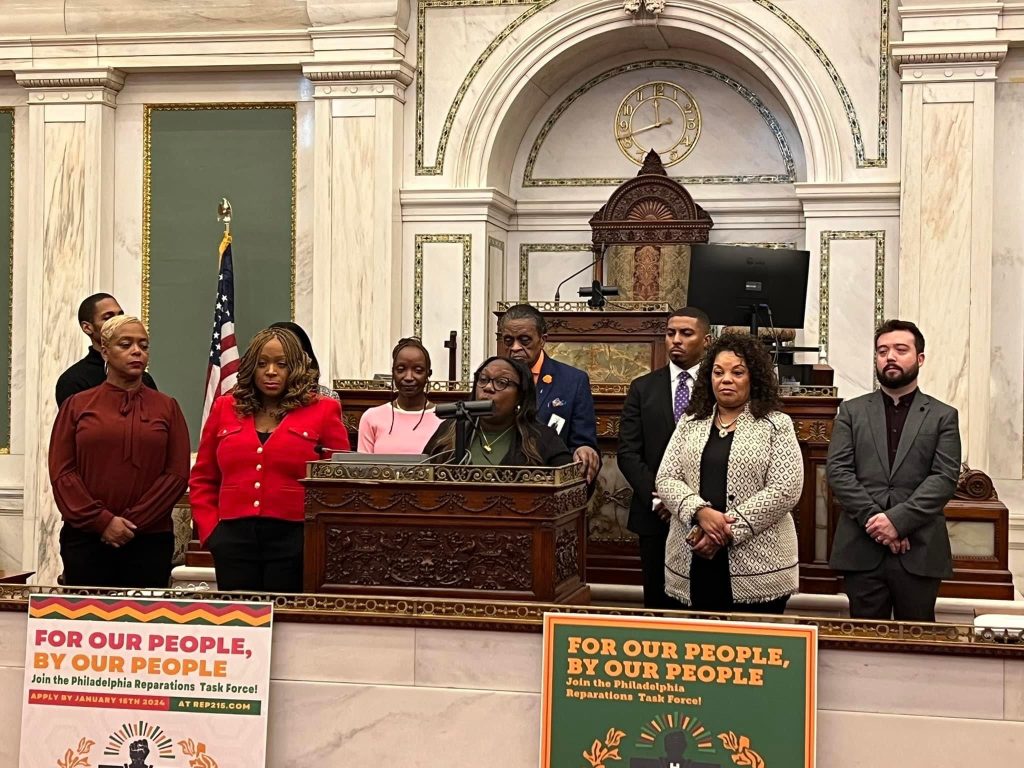

Mr. Buscher has also utilized film and music as a tool for community building in Greater Philadelphia For example, during his first year programming the Philadelphia Asian American Film Festival in 2013, the festival partnered with the African American Museum of Philadelphia and Reelblack Presents, a long running Black film screening series, to program Late Summer, a film that paid tribute to Japanese filmmaker Yasujiro Ozu but was set in a predominantly Black community in the Deep South with an all-Black cast. The screening of this film was followed by a panel discussion of Black and Asian American filmmakers where they discussed some of their shared challenges and ways to better support each other’s communities.
“Film is a medium that allows you to put yourself, as an audience member, in the shoes of another person…” Mr. Buscher says. “It’s a really powerful way to build empathy across communities.”
Most recently, Mr. Buscher has been a part of Japan America Society of Greater Philadelphia (JASGP)’s efforts in engaging with the predominantly Black community that it is located in, most notably through the restructuring and inclusion of local residents and artists in the annual Shofuso Cherry Blossom Festival. For the 2022 festival (the first since the start of the pandemic), they included non-Japanese performers who didn’t have a direct connection to the culture as part of the performance line-up for the first time, shifting their focus from exclusively Japanese performers to the overlap among Black communities and cultures, particularly in Black music, and Japanese and Japanese American communities. This manifested itself in nights of performances centered around funk, paying homage to a genre originating in the African American communities while also acknowledging the Japanese technology that has shaped its sound today, and percussion instruments, paralleling taiko performers with local drumline performers. Mr. Buscher notes that as a result of this and the people of the local community feeling represented within the programing of the festival, JASGP has had increased opportunities to engage with the local community as the representation has made JASGP and its programs feel more accessible to the community.
“The longer that I’ve done this work, the more that I realize I have so much more left to learn,” Mr. Buscher says. However, he’s excited for the new challenges that present themselves and the opportunities to reframe the goals within the Japanese American community to simultaneously support the goals of other groups in hopes of truly achieving society-wide change.
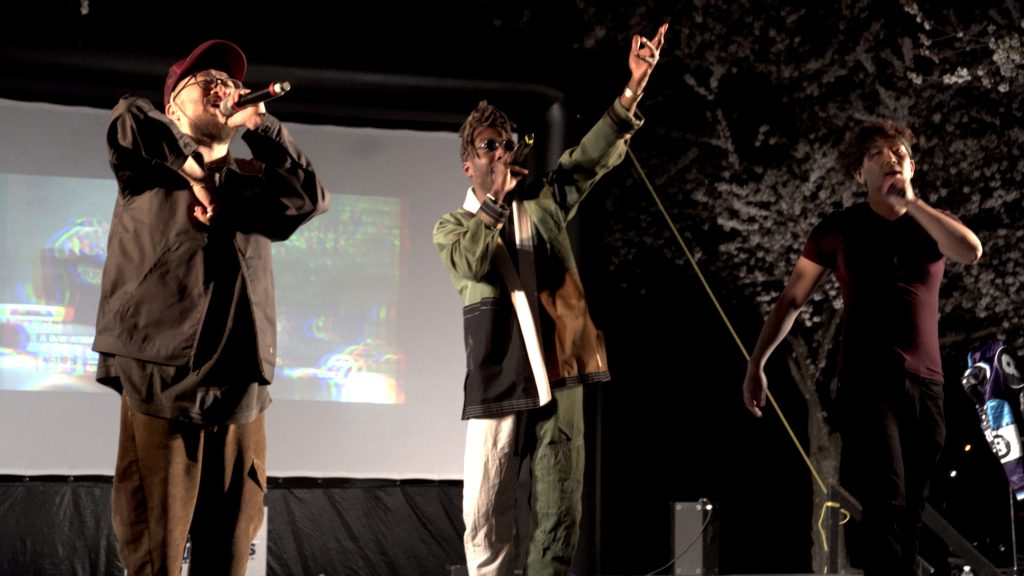
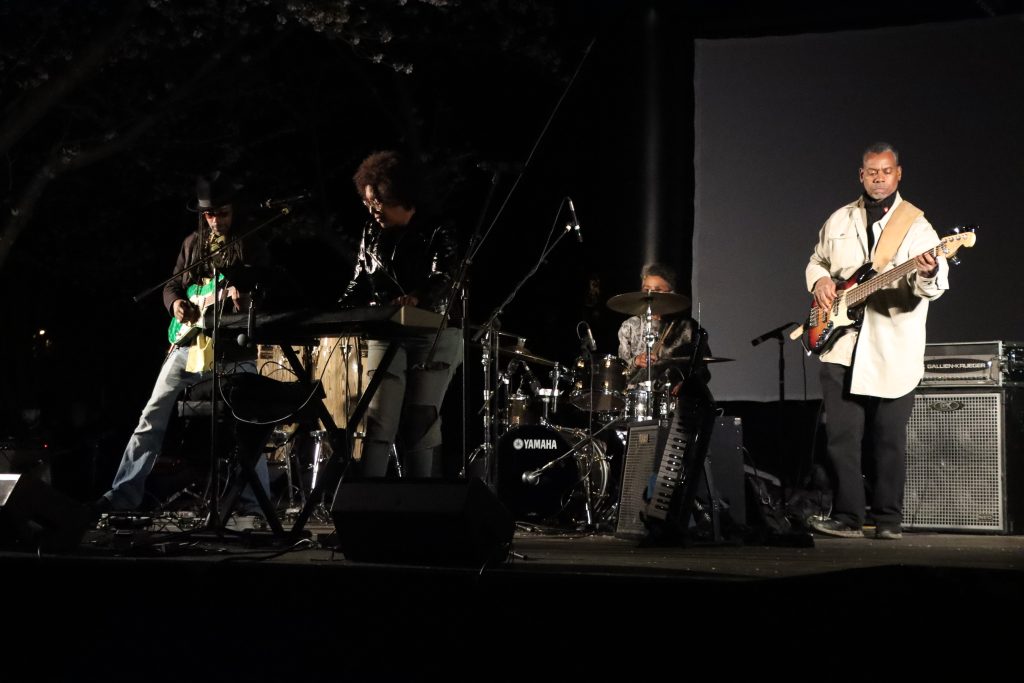
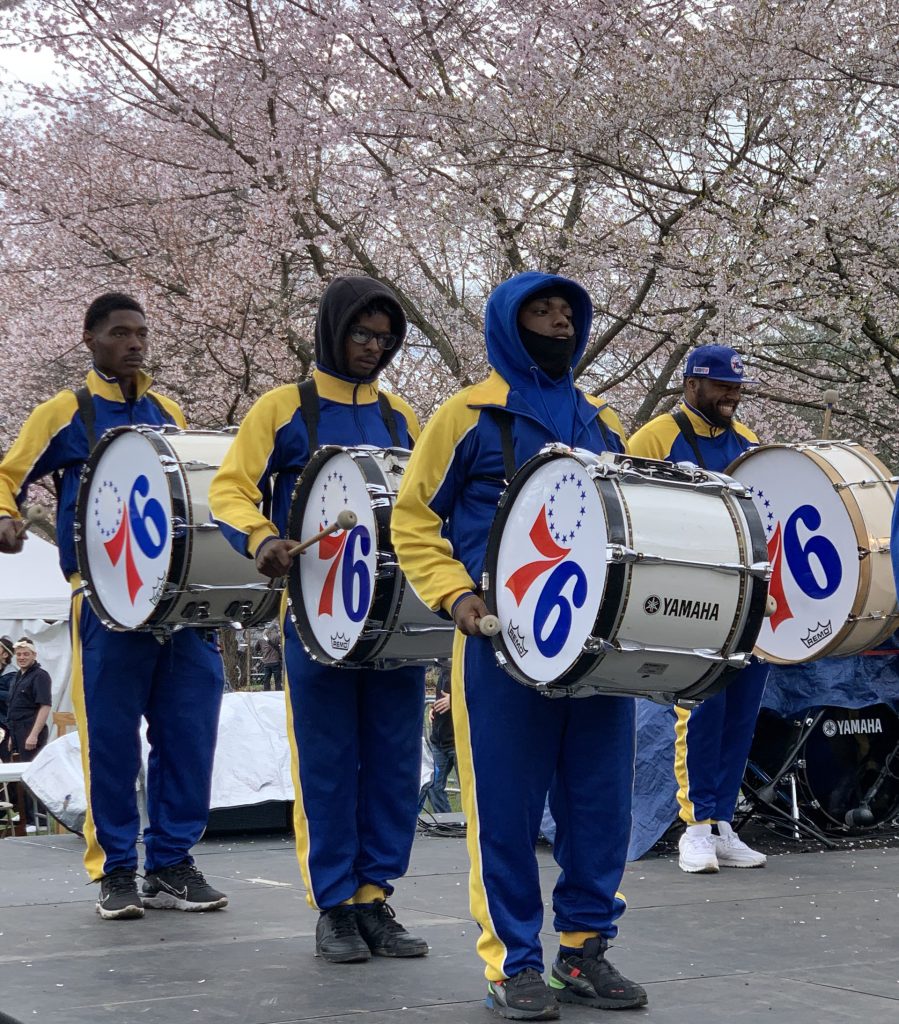
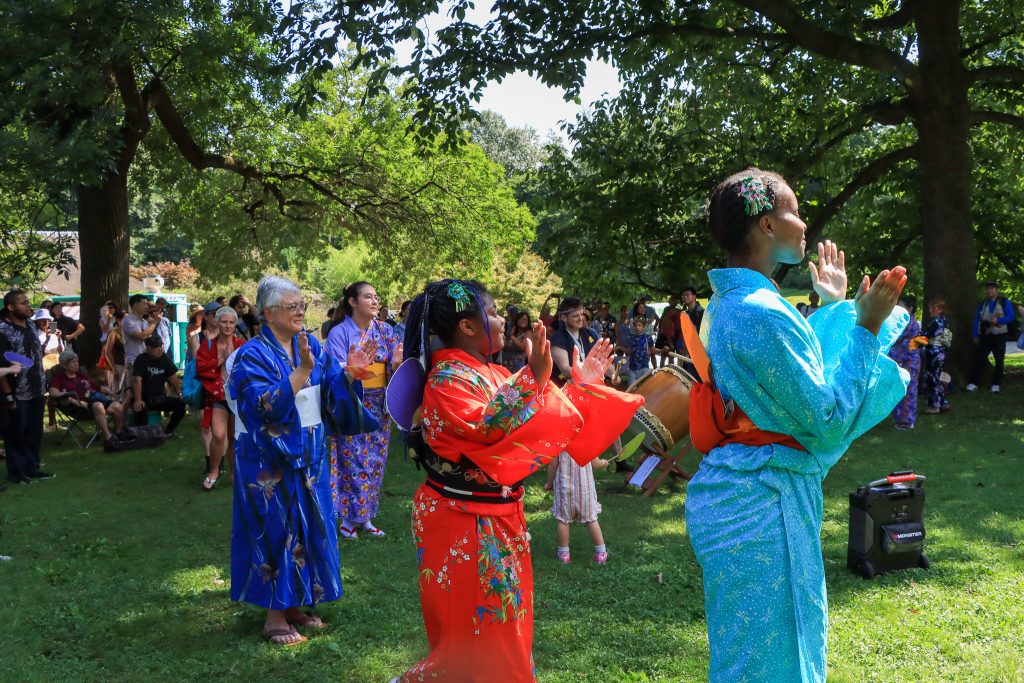
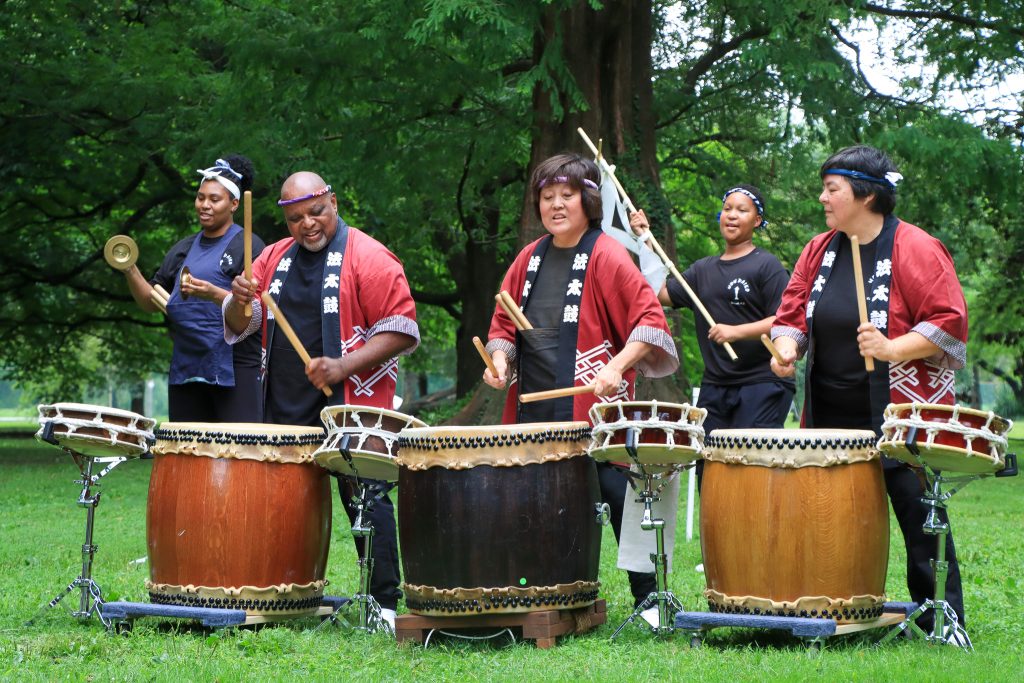
Thank you to USJC Associate Rob Buscher (Japanese American Confinement Sites Consortium) for speaking with the Council and sharing the above photos.